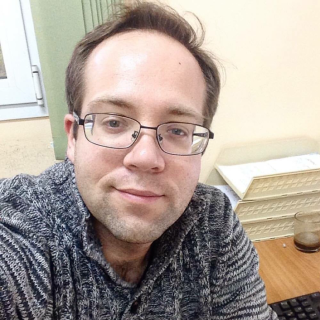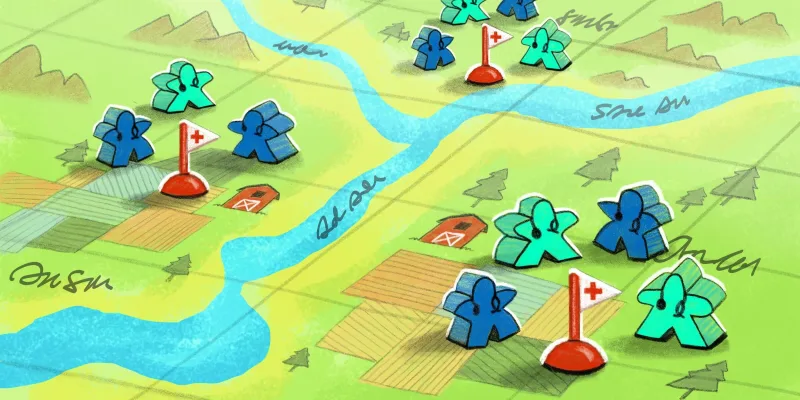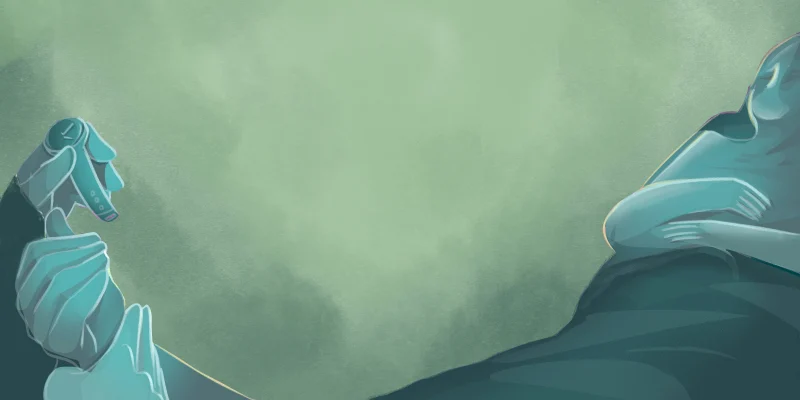Danny called me. He didn’t sleep last night; he didn’t sleep well the night before, either. He told me he has that funny feeling again, the one that he never seems able to explain.
“Doc,” he said, “I think I need to see you today.”
Danny is the first real bipolar patient I’ve ever treated. When he called, I’d known him for about two years. When I first met him, he was a skinny 18-year-old who was working in his town’s bakery. Everyone knew him as the funny, upbeat baker’s assistant. Then, his girlfriend left him and he started having strange ideas about life. He started getting messages from God. He didn’t sleep for a week, he sold his guitar collection and bought lottery tickets with the money. He was restless and reckless. He was talking so fast that it was impossible to follow his train of thought. He eventually texted some suicidal threats to a few friends and that’s how we met ….
At first, Danny denied anything out of the ordinary was happening. He said he didn’t understand why he’d been court-mandated for 14 days of psychiatric hospitalization. It was hard, but eventually, he took the medications and got well enough to sleep. After five days, he asked to be discharged. His family wanted him to stay longer. I wanted him to adhere to his meds and thought he had a better shot if we didn’t hold him against his will. My attending let me discharge him but told me that when he was back on the unit in a few days, we’d do things her way. I thought that she was old-fashioned and that Danny and I had an understanding. I went home for the weekend. On Monday morning Danny was back on my patient list.
This dance between Danny and I lasted for a year, and it included three inpatient stays. He continued to throw away his meds, smoke weed, and feel great — too great. I continued to tell him that if he continued doing what he was doing, we’d continue to see each other often. Eventually, though, it worked. Danny got insight. He told me that he had needed to fail repeatedly to understand there was something wrong: “If I took your meds right away,” he said, “how would I have known that I’m not really the one chosen to save the world?”
Being a doctor is the only work I was ever able to imagine myself doing. It feels like it’s in my blood. I endured medical school, where I initially flirted with the idea of practicing family medicine and urgent care. During training, I left my country and attended medical school abroad, returned home, did a year of obligatory internship, started residency in family medicine, resigned from family medicine after a year, worked in urgent care for another year, studied and passed the various steps of the USMLE, started a psychiatry residency, resigned again — it was a long road. Eventually, I came back to psychiatry, and now, finally, here I am, about to graduate and be independent.
I always felt that I was the first one in my family and friend group to take an untraveled path — and I had no one to guide me through it. As a result, I’ve taken the longer road to get to the place other people went directly. But lately, I’ve been contemplating a Talmud story I was introduced to as a child: A famous rabbi is traveling toward a city he’s never been to. He comes to a junction and has to choose between two roads. A child is sitting on the junction and the rabbi asks him: Which road should I take to get to the city? The child tells him that both roads lead to the city; the first one is the long-short road and the second is the short-long road. The rabbi thinks about it and decides to take the short-long road, which sounds faster. But on the way, he ends up getting stuck in the orchards and gardens that surround the city he is trying to reach. He’s forced to go back to the junction. The moral of the story is that sometimes you need to take the road that seems longer in order to get where you want to be. If you take the “shorter” road, you might meet obstacles you’re not equipped to deal with yet.
I think what happened to the rabbi happened to me — and I think it happens to a lot of us. We choose a path and, retrospectively, wish we had chosen differently. We think that if we had chosen a different path, the journey might have been easier and quicker. But if we’re honest with ourselves, like Danny eventually was himself, we realize it’s not true. Whatever happened, it could only have happened the way that it did, for better and, unfortunately, for worse.
In the story, when he returns to the junction, the rabbi asks the child why he didn’t tell him he was making the wrong choice. The child says: Didn’t I tell you it was the short-long road?
We often choose what we want to choose, believing the choice is correct because of our past experiences and, maybe, because we believe we know better. Asking for help and admitting vulnerabilities are fundamental for change — the mind that creates the problem is rarely the one that solves it. In these almost 10 years now, as I’ve practiced medicine in different settings, I’ve learned some simple truths. In order to change, we need to admit there’s something that we’re doing or thinking (or both) that isn’t serving us. Most of the time, we’ll have to admit that the problem is beyond our control — and then we need to ask for help. The mind that can admit it’s wrong is flexible enough to change and find peace.
I needed to walk the long road to find my destination, just like Danny needed those three hospitalizations. Now, with open minds and hearts, we can both ask for help. And we can both change.
Dr. Yehonatan Shilo is a psychiatrist with an international perspective on health care. He completed his education in Italy and has practiced medicine and psychiatry in Israel and the United States. He has special interests in underserved populations, health care policy and psychotherapy. He is a 2020–2021 Doximity Op-Med Fellow.
Image by Giordano Aita / Shutterstock







